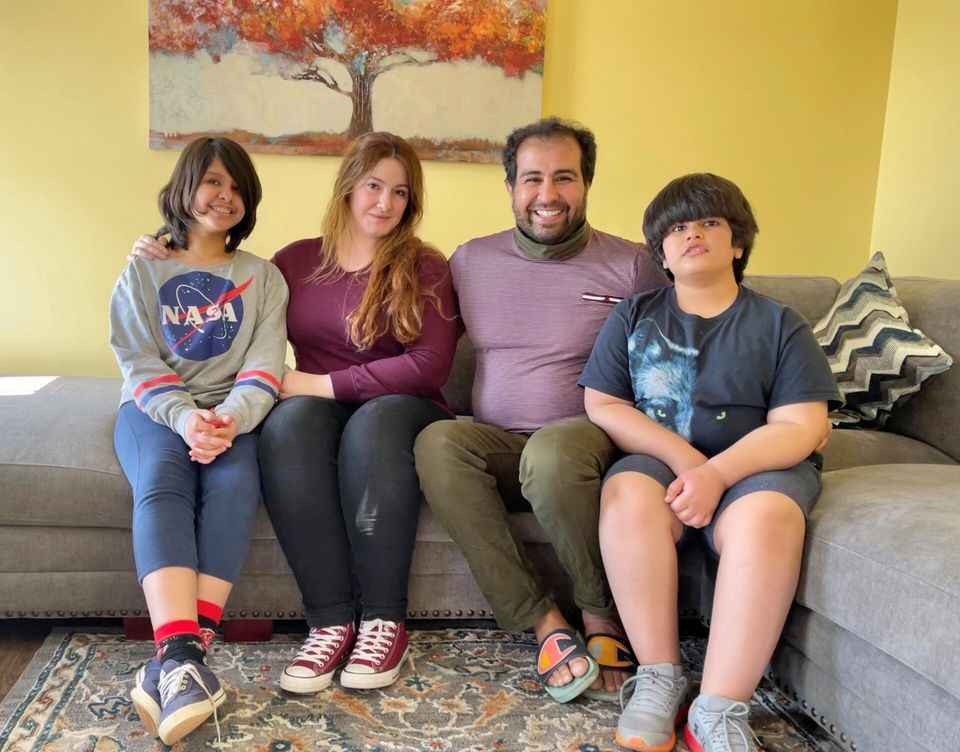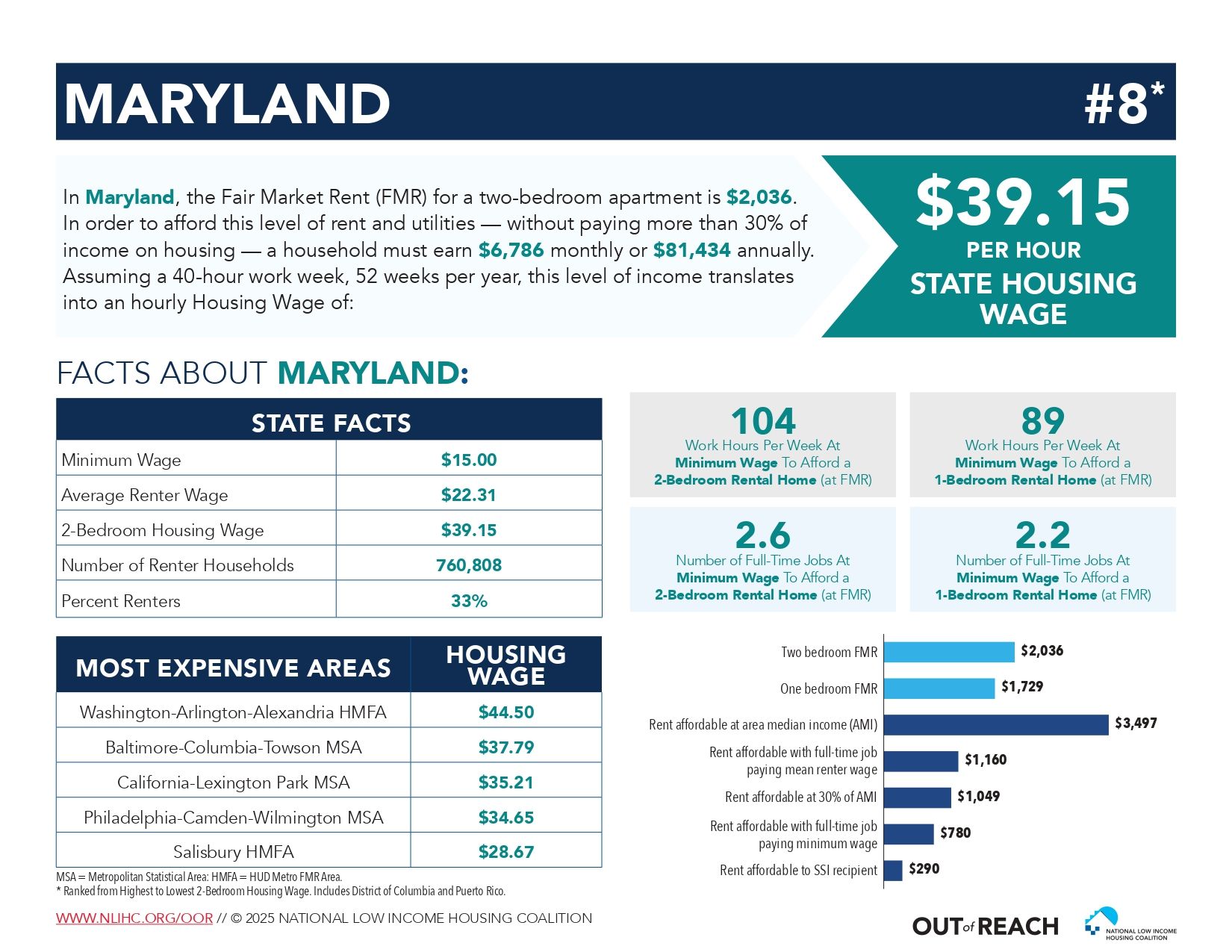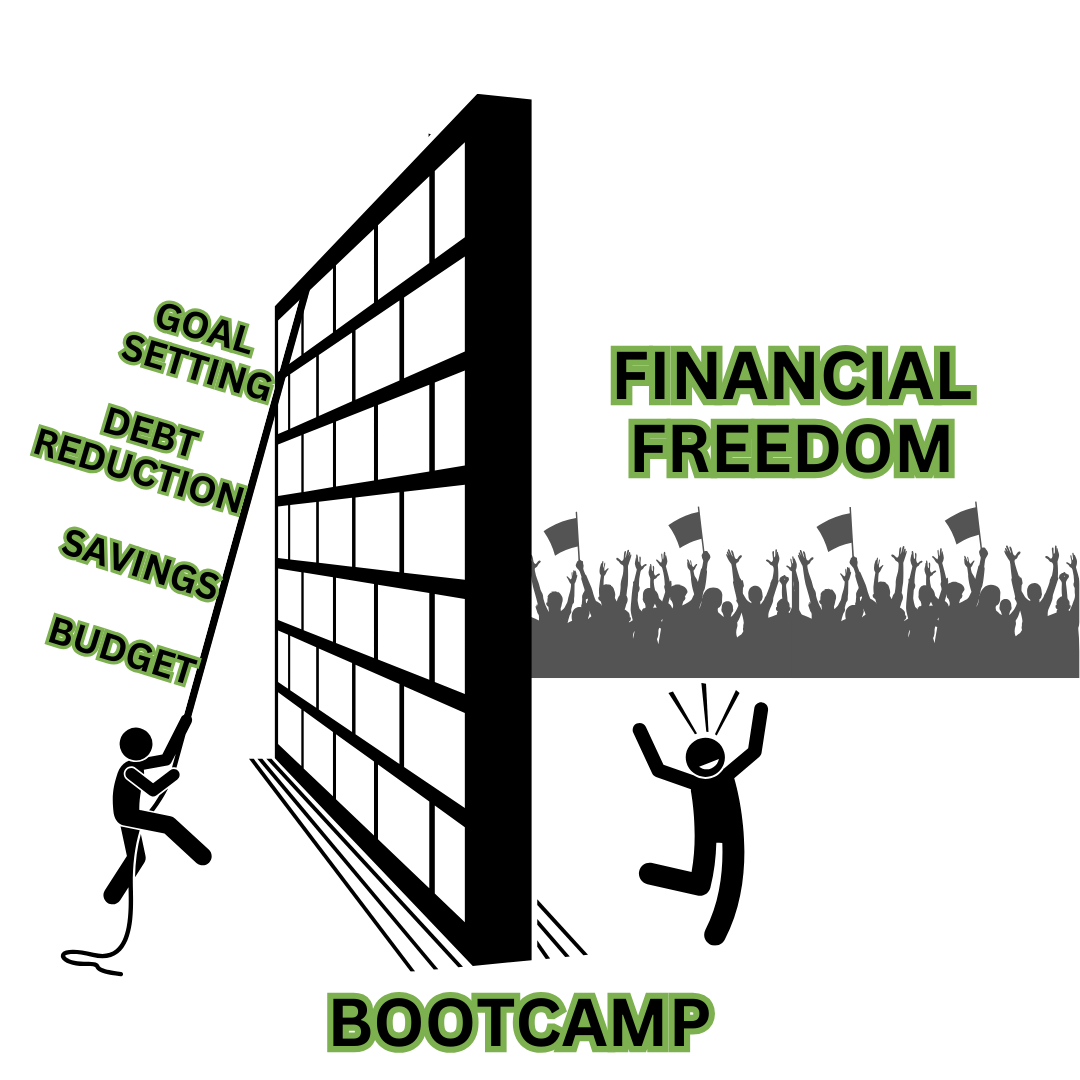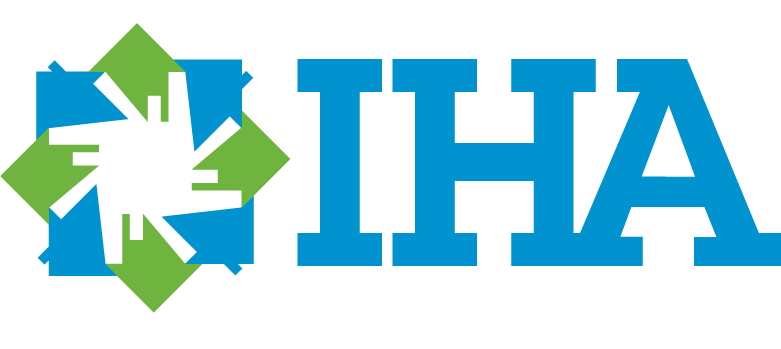From Sacrifice to Success
Vivian Duran • March 31, 2021
Mohammed and Faten contacted Interfaith Housing Alliance in September 2019, wanting to know more about the Purchase Repair Homeownership Program.

Mohammed and Faten contacted Interfaith Housing Alliance in September 2019, wanting to know more about the Purchase Repair Homeownership Program. Faten’s close friend, Denise Taylor, had shared her wonderful homeownership experience with IHA. Denise came to IHA in July 2014 and told Faten how much Carol Riggles, Homeownership Program Manager, provided great guidance and assistance with qualifying for USDA-RD 502 Direct Loan and IHA’s Homeownership Program. Hearing Denise’s great experience gave Faten hope for her homeownership dream to come true. What truly sparked Faten and Mohammed's interest in the program was the very low interest rate and the fact that they were able to make repairs to a home to gain equity.
Mohammed and Faten’s journey has been far from easy. Immigrants from Baghdad, Iraq – they felt they had no choice but to leave their country because it became too dangerous to stay when the war started. Mohammed and Faten met when they both worked as journalists in Iraq. Mohammed had completed 4 years in college to become an attorney but found employment at a TV station as a reporter. Faten was a teacher for fine arts who became a journalist working on parenting stories. Working for the same TV station, they fell in love and got married.
Faten got contracted with a US company working with American Troops completing reports on Iraq immigration. The 5-mile commute to work which should take 10 minutes took over 3 hours due to security check points having to inspect each car for devices and bombs. It was just too scary and stressful for Faten. Faten then got threats to be killed. Her employer offered to protect her as she worked in a green zone, but Faten was fearful to have those people follow her and kill her family and her. Luckily, Mohammed had just received an offer from an Egypt TV station who saw his TV reporting in Iraq and wanted to hire him.
They left as refugees and lived in Egypt for 5 years. Mohammed and Faten got approved to go to the US right after. They have been living in the United Stated for now 11 years and are very thankful for being able to live in this amazing country feeling safe, stable, and happy. Mohammed and Faten had to start from zero again when they arrived in the US. Having to live in apartments was very hard since they were raised in single family homes. The last apartment they lived in, they struggled with horrible maintenance. Leaks in the bathroom ceiling and constant pest issues. Several pieces of furniture and beds had to be thrown away numerous times. Mohammed and Faten’s goal and dream was to give their kids a safe and healthy single-family home.
It was a process to get their green cards and have stable and reliable income to qualify for USDA-RD 502 Direct Loan. Mohammed and Faten received their certificate of eligibility to start officially shopping for a home on September 22, 2020. Their Realtor and Board Member of Interfaith Housing Alliance Inc., Patricia Galloway, showed them numerous homes and finally submitted an offer on their dream home October 14, 2020.
Mohammed and Faten promised their kids they would make the home look nice since they thought it looked creepy at first. The most important part for them was the location of the home, the schools, and the layout of the home. The first time they saw the home, they told themselves, they can take out the carpet due to Faten’s severe allergies, they can paint the walls and were eager to finish the approved repairs by IHA and USDA-RD.
Lana, Mohammed and Faten’s daughter, was excited to share she helped paint. With a big smile she shared this was the first time she had her own room with privacy and beautiful view of mountains. Taym, Mohammed and Faten’s son, was happy he can finally have his own bed and enjoys making it. Lana and Taym enjoy playing in the playground set and running in the big yard. Now, their goal is to convince their parents to get a dog.
Mohammed and Faten feel blessed and thank god for everything. With a lot of patience during the process and maintaining positivity, they thanked everyone who assisted with the process to make their dream become a reality. Faten now truly feels calm and safe knowing her children have a place to call their forever home. Faten stated “I can see my children grow up here and go off to college. This home is for them.”
By: Vivian Duran

Maryland and Frederick County: A Growing Housing Affordability Crisis Each year around this time, I share data that highlights the growing challenge of housing affordability in Maryland—and this year is no exception. Maryland now ranks as the 8th most expensive state in terms of wages needed to afford a modest two-bedroom apartment. A worker must earn $39.15 per hour —or nearly $81,450 annually —just to meet that threshold. Unfortunately, the situation in Frederick County is even more severe. Alongside Calvert and Charles counties, Frederick tops the list, requiring a staggering $44.50 per hour —equivalent to $92,560 annually —to afford a two-bedroom apartment. Meanwhile, the average renter in Frederick earns just $18.25 per hour , which translates to an affordable rent of only $949 per month —far below what the market demands. This stark disparity is exactly why the mission of Interfaith Housing Alliance (IHA) is so critical. We are committed to addressing these inequities and advocating for solutions that make safe, stable housing accessible to all. Below, you’ll find the 2025 data from the National Low Income Housing Coalition , detailing housing affordability across Maryland and its counties.

Interfaith Housing Alliance (IHA) is proud to announce two funding awards received this quarter from community partners. In July 2025, IHA received a $3,500 grant from The Croteau Family Charitable Gift Fund, which is a donor-advised fund (DAF) held at T. Rowe Price Charitable. IHA also received a $5,000 grant from The Natelli Communities Charitable Fund of The Community Foundation of Frederick County. These unrestricted funds will support all of IHA’s endeavors in strengthening the many communities we serve.

Money can sometimes feel overwhelming—but it doesn’t have to! This October, Interfaith Housing Alliance is offering our next Financial Freedom Bootcamp, a free, two-part workshop designed to help you take positive steps toward financial stability and confidence. The bootcamp kicks off with an in-person workshop on October 15th from 5:30–7:00pm, where participants will explore the building blocks of financial health. You’ll learn how to create a budget that actually works for your lifestyle, discover the best practices for saving, and walk away with strategies for reducing debt in realistic and manageable ways. After the first session, participants are invited to take part in an optional virtual Credit Café, a supportive space to dive deeper into questions about credit and money management. This extra resource helps reinforce what you’ve learned and gives you the chance to connect with others working toward similar goals. The second workshop will be held virtually on October 29th from 5:30–7:00pm, making it convenient to join from home. This session will focus on building confidence when communicating with creditors, understanding your credit, and setting SMART goals to stay on track for the future. Together, these two sessions provide practical, easy-to-use tools to support your financial journey. No matter where you are starting from—whether you’re new to budgeting, trying to rebuild your credit, or just looking for ways to feel more in control—Financial Freedom Bootcamp is a welcoming and encouraging place to begin. At a Glance What : Financial Freedom Bootcamp – free, two-part workshop series When: October 15th (in-person) & October 29th (virtual), both 5:30–7:00pm Topics: Budgeting, saving, debt reduction, credit confidence, SMART goal setting Extras: Optional virtual Credit Café between sessions Register: Contact Lacy Allen at lames@interfaithhousing.org or 301-662-4425 ext. 1203
